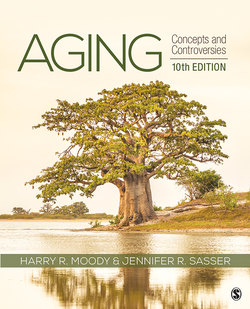Читать книгу Aging - Harry R. Moody - Страница 58
На сайте Литреса книга снята с продажи.
Activity or Reflection?
ОглавлениеThe previous discussion initially looked at two classical theories of aging—disengagement and activity. We saw how both theories implicitly appeal to deeply held values but point in opposite directions. When we think about the question of whether old age has meaning, we come back, over and over again, to two fundamental alternatives: on the one hand, continuation of midlife values into old age, and on the other hand, discovering some new or special challenge or purpose that belongs to the last stage of life.
In the following readings, we begin with a selection by Simone de Beauvoir that offers the view of a philosopher who rejects traditional ideals of old age as a time of tranquility or disengagement. On the contrary, she believes that only continued activity on behalf of new goals will give our lives meaning, whether in old age or at any other time of life. Along these lines, John Rowe and Robert Kahn’s strategy of “successful aging” represents a way of preserving meaning by adapting ourselves to diminished reserve capacity. Rowe and Kahn believe that “success” is best defined by optimizing capacity for continued engagement with the activities of life.
Erik Erikson, writing with Joan Erikson and Helen Kivnick, shares this endorsement of engagement but takes a different approach. Erikson sees each stage of life as a period with its own purpose or psychological task to be achieved. Old age is different from other stages because it offers a kind of culmination to life as a whole. Erikson believes that, through concern for the welfare of future generations, older people find a sense of meaning in later life. In the personal journal of Florida Scott-Maxwell, we find an echo of Carl Jung’s belief that advanced age is a time for turning inward for deeper reflection. Her rich reflections prove that even when outer activity is cut off, it is still possible to find deep meaning in the last stage of life (Berman, 1986).
Modernization has made it possible for people to live a greater portion of their lives in old age than ever before in history. At the same time, the distinctive stance of postmodern culture tends to preclude finding any special meaning or purpose for the last stage of life. Whether modernization has reduced the power of the old seems debatable. Public spending for old-age benefits suggests that just the opposite may be true. But there is no doubt that modernization has helped to erode traditional ideas about fixed stages of life that were once based on shared meaning (Gruman, 1978). The result is a sense of openness or uncertainty about the meaning of old age. Such openness to new ideas and to contradictory answers is disconcerting to some and exhilarating to others. However, the future of an aging society will be shaped by all of us because, in the end, the old are simply our future selves.
